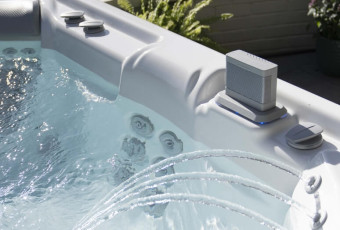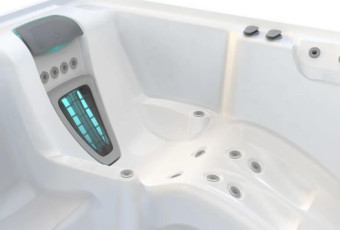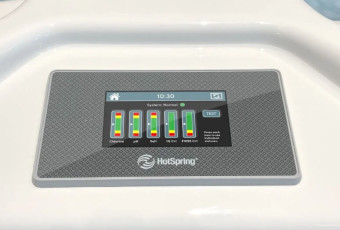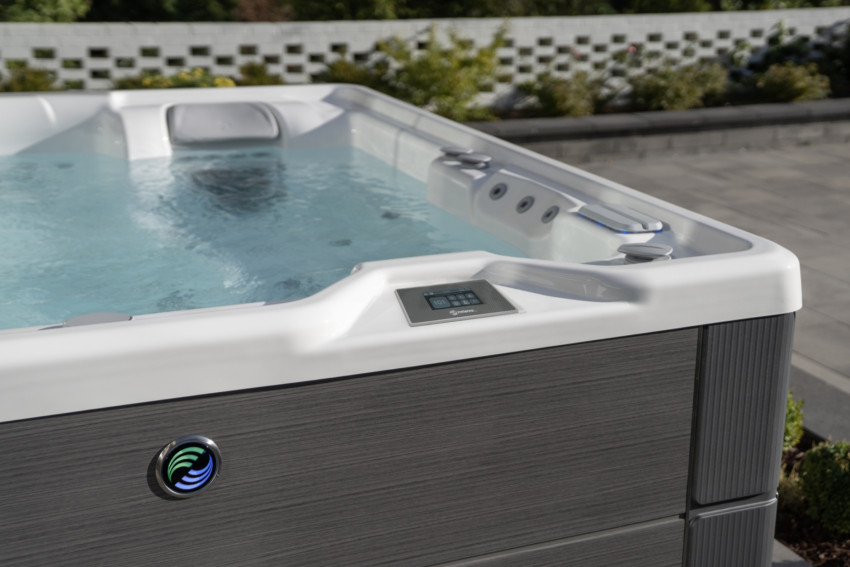Fibromyalgia is a mysterious and often debilitating disorder that is characterised by any number of symptoms, though the most common is chronic and widespread pain. The healing powers of warm water have been recognised for millennia, so could a soak in a spa pool be an effective way to manage the symptoms of fibromyalgia?
Hot tubs and spa pools can certainly provide relief to those living with fibromyalgia. They do so by acting in a number of ways: taking weight off of sore joints and muscles, promoting blood flow, improving sleep and relieving stress.
How exactly could a regular soak in a spa pool help to manage fibromyalgia? Read on to find out.
What is fibromyalgia?
Fibromyalgia affects somewhere between 2% and 8% of the population, and is around twice as common in women as it is in men. Pain aside, the condition can present itself through any number of other symptoms, including overwhelming tiredness, sleep problems, and cognitive dysfunction, and in some cases sensory sensitivity, bowel and bladder problems, and restless leg syndrome.
Unfortunately, the cause of fibromyalgia largely remains a mystery, though a combination of genetic and environmental factors have been identified as contributors, such as stress, trauma and particular types of infections. The mysteriousness of the disorder means that diagnosis is reliant on verifying a certain number of symptoms and ruling out other potential causes.
While the unknowns surrounding fibromyalgia make it a difficult condition to prevent, it is far from untreatable. There are a wealth of medications that can help to control symptoms, while a number physical therapies have also proven effective.
Can I go in a hot tub with fibromyalgia?
Before we get into whether or not a soak in a spa pool is good for people with fibromyalgia, we should first establish whether it’s safe. Should someone suffering from fibromyalgia be at all concerned about taking a soak in a hot tub?
Rest assured that hot tubs, spa pools and swim spas are 100% safe for those living with fibromyalgia. There’s nothing about the condition that would see sitting in warm, bubbling and tension-relieving waters resulting in adverse effects. In fact, a soak could do active good in the quest to manage the condition.
Are spa pools good for fibromyalgia?
In Australia, spa pools have long been seen as places of health and wellness; where you can leave the troubles of the day behind, and feel physical and mental tension melt away. Which raises a question: if spa pools aren’t harmful to sufferers of fibromyalgia, could they be good for the condition?
Science has an answer. This 2012 study collated all information then available on the effectiveness of spa therapy (a broad spectrum of therapeutic modalities including hydrotherapy, balneotherapy, physiotherapy, mud-pack therapy, and exercise) in the treatment of fibromyalgia. It found that spa therapy was effective and useful in reducing pain and improving function, particularly when used as a complement to conventional therapies.
Can a hot tub help with chronic pain?
Hot tubs and spa pools are predominantly seen as places of indulgence, relaxation and fun. It can be a surprise to hear that they can be an effective form of treatment too. But when you look at the way warm water immersion has been used to heal for millennia, and how modern hydrotherapy is now used to treat all manner of conditions, the health benefits of hot tubs begin to make more sense.
Hot tubs and spa pools can be an incredibly effective treatment option for sufferers of chronic pain, including those with fibromyalgia. Science has reached the same conclusion: that spa pools and hydrotherapy form an effective treatment for chronic pain.
The reasons lie in the ways that warm water interacts with and induces physiological responses from the body:
- The water opens up blood vessels, promoting the flow of nutrient-rich blood to aching joints and muscles.
- The buoyancy of the water takes weight off tired and aching joints.
- This buoyancy also allows for greater movement, which opens up a range of physical therapies that have also proven effective in the treatment of fibromyalgia.
Is swimming a good exercise for fibromyalgia?
For many people who suffer from fibromyalgia, exercise is the farthest thing from their mind. While the condition can present itself through a wealth of debilitating symptoms, the chronic pain alone can be enough for sufferers to put off any attempt at exercise. But they shouldn’t.
Physical therapy, particularly when used in partnership with medication, is an incredibly effective treatment for fibromyalgia. Warm water swimming and aquacise can be easier on the joints than traditional exercise, relaxing muscles and reducing pain, while the resistance of the water can be used to improve your strength and balance.
Do spa pools help you sleep better?
One of the most common symptoms of fibromyalgia is difficulty sleeping, made worse by the fact that another common symptom is chronic tiredness. Many sufferers find themselves stuck between these two symptoms – forever tired, but unable to do anything about it. But relief might be found in an unlikely source.
Multiple studies have proven that hydrotherapy can be used as an effective treatment for suffering from sleep problems, including fibromyalgia patients. If you soak approximately 90 minutes before bed, your body’s internal thermostat is triggered into lowering your temperature, which can induce drowsiness and ultimately lead to sleep.
In this study, 50 women who suffered from fibromyalgia were divided into two groups. 25 received conventional physiotherapy, the other 25 hydrotherapy. 24 patients in the hydrotherapy group reported an increase in total sleep time compared to 19 in the conventional physiotherapy group, leading the researchers to conclude that “hydrotherapy is more effective than conventional physiotherapy to improve total sleep time (and to decrease total nap time) in fibromyalgia patients.”
Are spa pools good for fibromyalgia? Looking at all the evidence listed above, the answer seems to be a resounding yes.













